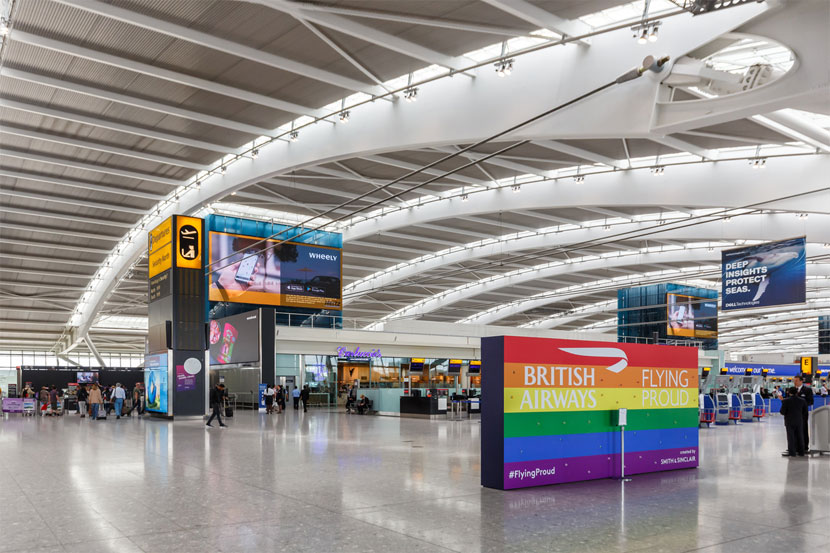Saturday, April 13, 2024

The recent introduction of the Electronic Travel Authorisation (ETA) at London’s Heathrow Airport marks a significant change in the UK’s approach to managing international travel. This new £10 charge, applicable to visa-exempt passengers, is part of the government’s strategy to enhance border security.
This policy mirrors similar systems like the US ESTA and the EU’s forthcoming ETIAS. This article explores the implications of the ETA, its operational mechanics, the reaction from the travel industry, and its potential impact on Heathrow’s status as a major global transit hub.
What is the Electronic Travel Authorisation?
The ETA system requires travellers from certain countries, previously visa-exempt, to obtain an online permit before entering the UK. Introduced initially for Qatari nationals in November and subsequently extended to several other Middle Eastern countries, the scheme will eventually apply to over 60 nations.
The permit, which costs £10, is valid for two years and allows multiple entries. The government advocates that the ETA enhances national security by allowing more thorough pre-screening of travelers. However, the requirement also extends to passengers merely connecting through UK airports like Heathrow, who won’t pass through border control, a stipulation that has stirred significant controversy.
Industry Reaction and Criticisms
The travel and aviation sectors have responded critically to the implementation of the ETA. Major stakeholders, including Heathrow Airport, Virgin Atlantic, and British Airways, argue that the charge for connecting passengers is detrimental.
They believe it places the United Kingdom at a competitive disadvantage against other international transit hubs such as Dubai and Istanbul. The recent decline in Qatari nationals traveling through Heathrow, a decrease of 19,000 since the policy’s implementation, exemplifies the potential negative impact on airport traffic. The industry leaders and travel experts express concerns that these regulations may deter tourists and business travelers from choosing the United Kingdom as a destination or transit point.
Comparisons with Other International Practices
Unlike the ETA, similar programs like the US ESTA and the EU’s ETIAS are generally more focused on travelers intending to enter the respective territories, not just those connecting through them. Notably, the US ESTA allows travelers to stay for up to three months, providing more flexibility compared to the ETA’s transit-only permission. This stark difference highlights the unique challenges faced by Heathrow, which relies significantly more on connecting passengers compared to other major international airports.
Potential Long-Term Impacts on Heathrow
The implementation of the ETA could potentially reshape Heathrow’s future as a global travel hub. The additional bureaucracy and costs might push travelers to choose other airports for connections, affecting Heathrow’s operational volume and financial health. With around 30% of its traffic composed of connecting passengers, the implications of reduced transit visits are substantial. Moreover, the introduction of this policy coincides with other challenging factors, including delays in upgrading airport security technology and ongoing debates over aviation capacity in the UK. These issues collectively threaten Heathrow’s status as a premier international transit point.
Heathrow’s new ETA charge represents a critical juncture for the UK’s travel and aviation industry. While intended to bolster security, the broad application of the charge to connecting passengers has raised significant concerns among airlines, airport authorities, and travelers alike. The UK government faces a delicate balance: enhancing security while maintaining the attractiveness and competitiveness of its major international hubs. The effectiveness of the ETA in achieving these goals without compromising Heathrow’s pivotal role in global aviation remains to be seen. As this policy unfolds, its long-term impacts will be a key indicator of the UK’s standing in the international travel industry.
Monday, April 29, 2024
Monday, April 29, 2024
Monday, April 29, 2024